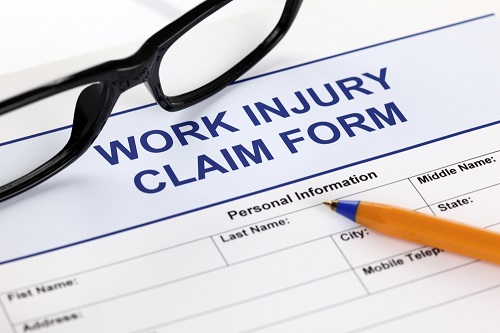
Should I File a Workers’ Compensation Claim?
On-the-job injuries and illnesses happen every day in a variety of workplaces across the United States. Data from the U.S. Bureau of Labor Statistics shows nearly 3 million American workers get hurt on the job every year. But how many injuries or illnesses at work rise to the level of needing to involve an insurance company?
Small business owners, or policyholders, who wonder “should I file a workers’ comp claim?” can rely on a simple rule of thumb: any worker injury that requires medical help beyond self-treating first-aid is an injury that should be filed.
Stated another way, if a worker seeks treatment where they incur a bill, that should be filed. This would include lacerations requiring stitches; broken bones; deep bruises; muscle, tendon and ligament damages or tears; concussions, or any injury where an employee is rendered unconscious; or injuries where bleeding cannot be stopped, such as an impalement, stab wound or gunshot wound.
Some employers also require their workers to report “near-misses” be filed so they can keep track of safety code violations. These are accidents where workers escaped serious injury, but a correction must take place to prevent another similar accident from reoccurring.
Every state has different reporting deadlines for work-related injuries. Some are as liberal as two years, other as strict as five days. Regardless, filing workers’ comp claims promptly is always the best course of action.
Delayed reporting can also hurt a business owner, as it can affect their Experience Modification Rate to a certain degree. An Experience Modification Rate (also known as a Modifier, Mod or Ex-Mod) is an adjustment of an employer’s premium for workers’ comp coverage based on the losses the insurer has experienced from that employer.
Carriers sometimes incentivize owners to report claims early by offering a discount within their program. So, policyholders could potentially lose their discount if they report a claim late. Additionally, in some states, it’s a misdemeanor for employers to fail to report worker injuries in a timely manner.
Every employer is required to post on-site for workers the name of their workers’ comp insurance carrier and where to go to seek medical treatment covered under the policy. The business owner must also provide the employee with the correct forms to file to the workers’ compensation provider, forms to report to the state workers’ compensation board (if state law requires it) and information about their rights, benefits and returning to work. The business owner will then file the claim with the insurance provider.
When filing claims, owners can expect to be asked to provide some standard information to their workers’ comp providers:
- The company’s name and address
- The injured worker’s name, address, Social Security number and birth date
- State in which the injured worker was hired
- Injured worker’s occupation (job title) at the time of injury
- Date of injury
- Address/location of accident (Was the accident on the employer’s premises?)
- How did the accident occur?
- How many people were injured in the accident?
- Part(s) of the body injured
- Did the injured worker return to their next scheduled shift after the accident?
- Is the validity of the claim doubted? If so, tell us why.
- Are the injured worker’s wages being paid during disability?
- Does the employee hold a full time (40 hours per week) position?
- Injured worker’s wage on the date of injury (salary or hourly pay amount)
Shortly after reporting a claim, a claims professional with the insurance provider will call the owner to discuss the next steps.
EMPLOYERS® is committed to helping small businesses operate safer, more efficient workplaces. If you have workers’ compensation claim, start by reporting with us and downloading your state claim kit. Contact EMPLOYERS® today to learn more about our cost-effective workers’ compensation insurance.
The information provided is intended to provide a general overview. This information is not legal advice and should not be relied on as such. EMPLOYERS® makes no warranties for the accuracy, adequacy, or completeness of the information provided, and will not be responsible for any actions taken based on the information contained herein. If you have legal questions or need legal advice, please consult an attorney.
